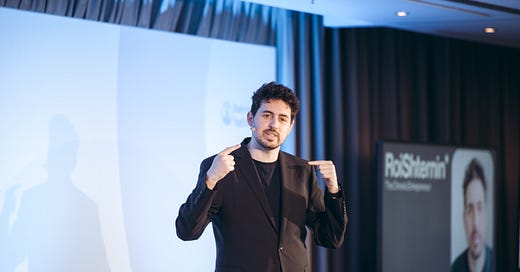Business leaders constantly seek fresh perspectives and insights to share with our teams and customers. The conventional route is to invite renowned academics, CEOs, and successful entrepreneurs to provide their wisdom and perspective through keynote speeches and presentations. However, we may be missing out on some of the most compelling and meaningful…
Keep reading with a 7-day free trial
Subscribe to RoiSternin⭐ to keep reading this post and get 7 days of free access to the full post archives.


